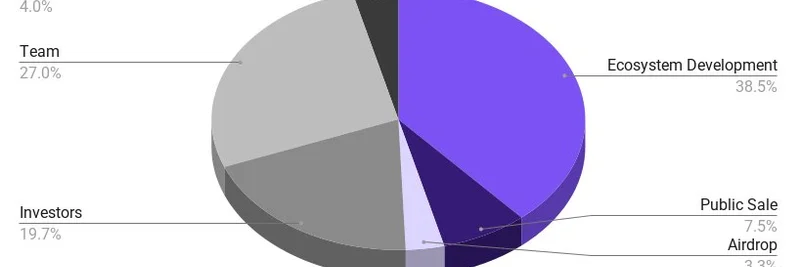In a recent discussion, Anatoly Yakovenko, a prominent figure in the blockchain space, shared his vision for the future of finance through the concept of internet capital markets. This idea, which leverages blockchain technology, aims to transform how value is represented, owned, and traded on a global scale. Let's dive into the key points from his conversation and understand the potential impact on the financial landscape.
The Vision of Internet Capital Markets
Yakovenko's vision centers around the idea that all forms of value can be digitized and managed on a single, internet-native ledger. This approach promises to make capital formation more efficient, allowing companies to raise funds from a global pool of investors. The use of blockchain technology facilitates transparent and frictionless mechanisms for price discovery, governance, and reward distribution.
One of the most significant advantages of this system is the democratization of investment opportunities. Through fractional ownership and improved liquidity, assets that were previously inaccessible become available to a broader audience. This shift not only fuels a more inclusive ownership economy but also opens up high-growth markets to a global audience.
Reducing Risk and Enhancing Participation
A core theme in Yakovenko's discussion is the reduction of risk in financial transactions. By leveraging blockchain's inherent transparency and security, internet capital markets can minimize the risks associated with traditional financial systems. This reduction in risk encourages more people to participate, as they feel more confident in the stability and reliability of the system.
For instance, Yakovenko points out that "you're reducing risk means you're allowing people to take more risk." This paradox highlights how a secure foundation can actually enable greater innovation and risk-taking, as participants are protected by the underlying technology. This is particularly important in a world where financial systems are often fraught with uncertainties and inefficiencies.
The Role of Tokenization
Tokenization plays a crucial role in this new financial paradigm. By representing assets as digital tokens on a blockchain, it becomes possible to trade and collateralize them instantly. This process enhances efficiency and liquidity, as assets can be moved 24/7 without the delays typical of traditional markets.
Yakovenko emphasizes that tokenization "improves collateral mobility and capital efficiency." This means that funds can be accessed and utilized more effectively, optimizing intraday liquidity and meeting payment and settlement obligations in real-time. Such improvements could unlock untapped capital and drive economic growth on a global scale.
Global Implications and Regulatory Considerations
The vision of internet capital markets extends beyond technical innovations to encompass broader global implications. Yakovenko discusses how this system could reduce the friction between different regulatory environments, making it easier for startups and investors to operate across borders. For example, he notes that "the more you can put on chain, the less risk there is in it for all the participants."
However, this also raises important questions about regulation. Different countries have varying regulatory frameworks, and navigating these can be challenging. Yakovenko suggests that a unified, on-chain approach could simplify these interactions, but it also necessitates careful consideration of how to balance innovation with regulatory compliance.
The Future of Finance
As we look to the future, the concept of internet capital markets offers a glimpse into a radically different financial landscape. Yakovenko's insights suggest that we are on the cusp of a transformation that could make finance more accessible, efficient, and inclusive. By reducing barriers to entry and enhancing liquidity, this system has the potential to empower individuals and businesses worldwide.
In conclusion, Anatoly Yakovenko's discussion on internet capital markets provides a compelling vision for the future of finance. Through the power of blockchain and tokenization, we may soon see a world where financial transactions are seamless, secure, and accessible to all. This shift promises not only to revolutionize how we think about money but also to create new opportunities for growth and innovation on a global scale.




